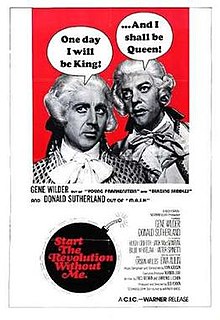
Lady Sings the Blues is a 1972 American biographical drama film directed by Sidney J. Furie about jazz singer Billie Holiday, loosely based on her 1956 autobiography which, in turn, took its title from Holiday's song. It was produced by Motown Productions for Paramount Pictures. Diana Ross, in her feature film debut, portrayed Holiday, alongside a cast including Billy Dee Williams, Richard Pryor, James T. Callahan, and Scatman Crothers. The film was nominated for five Academy Awards in 1973, including Best Actress in a Leading Role for Diana Ross.

Silent Movie is a 1976 American satirical comedy film co-written, directed by and starring Mel Brooks, released by 20th Century Fox in the summer of 1976. The ensemble cast includes Dom DeLuise, Marty Feldman, Bernadette Peters, and Sid Caesar, with cameos by Anne Bancroft, Liza Minnelli, Burt Reynolds, James Caan, Marcel Marceau, and Paul Newman as themselves. The film is produced in the manner of a 20th-century silent film with intertitles instead of spoken dialogue ; the soundtrack consists almost entirely of accompanying music and sound effects. It is an affectionate parody of slapstick comedies, including those of Charlie Chaplin, Mack Sennett, and Buster Keaton. The film satirizes the film industry, presenting the story of a film producer trying to obtain studio support to make a silent film in the then-present 1970s.
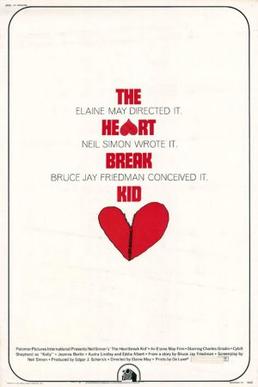
The Heartbreak Kid is a 1972 American romantic black comedy film directed by Elaine May and written by Neil Simon, starring Charles Grodin, Cybill Shepherd, Jeannie Berlin, Audra Lindley, Eddie Albert, and Doris Roberts. It is based on the short story "A Change of Plan", written by Bruce Jay Friedman and first published in Esquire in 1966.

Billie Honor Whitelaw was an English actress. She worked in close collaboration with Irish playwright Samuel Beckett for 25 years and was regarded as one of the foremost interpreters of his works. She was also known for her portrayal of Mrs. Baylock, the demonic nanny in the 1976 horror film The Omen.

Who Is Harry Kellerman and Why Is He Saying Those Terrible Things About Me? is a 1971 American comedy drama film directed by Ulu Grosbard and starring Dustin Hoffman.

Norwood is a 1970 American comedy film that reunites True Grit co-stars Glen Campbell and Kim Darby, also featuring Joe Namath. It was based on the novel of the same title, written by Charles Portis, but updated from the original 1950s setting to 1970.

Play It Again, Sam is a 1972 American comedy film written by and starring Woody Allen, based on his 1969 Broadway play of the same name. The film was directed by Herbert Ross, instead of Allen, who usually directs his own written work.
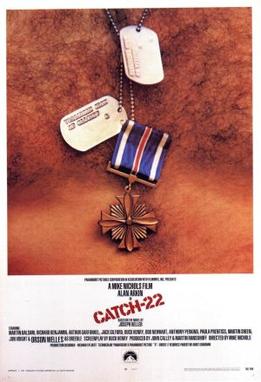
Catch-22 is a 1970 American satirical black comedy war film adapted from the 1961 novel of the same name by Joseph Heller. In creating a black comedy revolving around the "lunatic characters" of Heller's satirical anti-war novel set at a fictional Mediterranean base during World War II, director Mike Nichols and screenwriter Buck Henry worked on the film script for two years, converting Heller's complex novel to the medium of film.
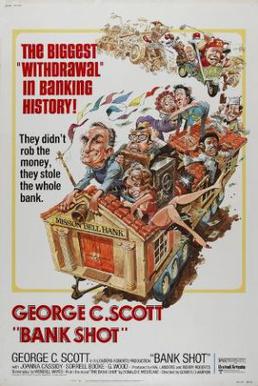
Bank Shot is a 1974 heist film directed by Gower Champion and written by Wendell Mayes. It was loosely based upon Donald E. Westlake's 1972 novel of the same name, which was the second book of his "Dortmunder" series. The film stars George C. Scott, Joanna Cassidy, Sorrell Booke, and G. Wood.

S*P*Y*S is a 1974 American spy comedy film directed by Irvin Kershner and starring Elliott Gould, Donald Sutherland and Zouzou. The film was screened at the 1974 Cannes Film Festival, but it was not entered into the main competition.
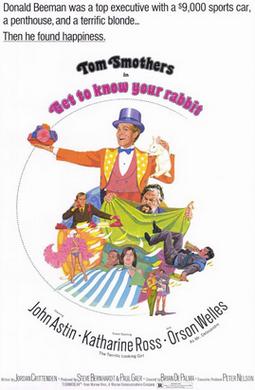
Get to Know Your Rabbit is a 1972 American comedy film written by Jordan Crittenden and directed by Brian De Palma.

Staircase is a 1969 British comedy-drama film adaptation of a two-character play, also called Staircase, by Charles Dyer.
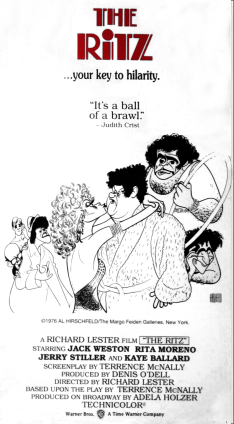
The Ritz is a 1976 British-American comedy farce film directed by Richard Lester based on the 1975 play of the same name by Terrence McNally. Actress Rita Moreno – who had won a Tony Award for her performance as Googie Gomez in the Broadway production – and many others from the 1975 original cast, such as Jack Weston, Jerry Stiller, and F. Murray Abraham, reprised their stage roles in the film version. Also in the cast were Kaye Ballard and Treat Williams. The film, Jack Weston, and Rita Moreno all received Golden Globe nominations in the comedy category. It opened to mixed reviews.

The Corsican Brothers is a novella by Alexandre Dumas, père, first published in 1844. It is the story of two conjoined brothers who, although separated at birth, can still feel each other's physical distress. It has been adapted many times on the stage and in film.
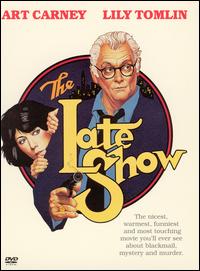
The Late Show is a 1977 American neo-noir mystery film written and directed by Robert Benton and produced by Robert Altman. It stars Art Carney, Lily Tomlin, Bill Macy, Eugene Roche, and Joanna Cassidy.

Gaily, Gaily is a 1969 American comedy film directed by Norman Jewison. It is a fictionalized adaptation of a 1963 memoir of the same name by Ben Hecht and stars Beau Bridges, Brian Keith, George Kennedy, Hume Cronyn and Melina Mercouri.

Plaza Suite is a 1971 American comedy film directed by Arthur Hiller. The screenplay by Neil Simon is based on his 1968 play of the same title. The film stars Walter Matthau, Maureen Stapleton, Barbara Harris and Lee Grant.
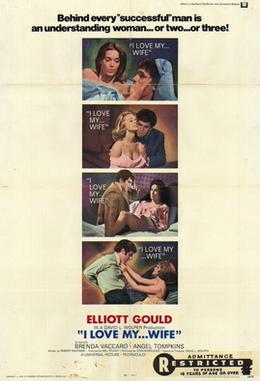
I Love My Wife, stylized as I Love My...Wife, is a 1970 American comedy film directed by Mel Stuart. It stars Elliott Gould and Brenda Vaccaro.
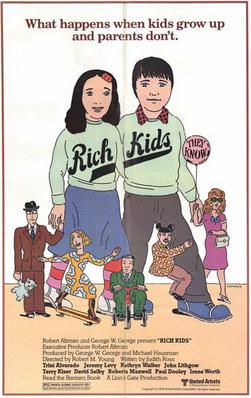
Rich Kids is a 1979 American comedy-drama film directed by Robert M. Young and starring Trini Alvarado and Jeremy Levy. It was nominated for two Young Artist Awards at the 1st Youth in Film Awards, held in 1979.

Norman... Is That You? is a 1976 American comedy film directed by George Schlatter and starring Redd Foxx and Pearl Bailey. It is based on the play Norman, Is That You? The film version changes the locale from New York City to Los Angeles and substitutes an African American family for a Jewish family in the original play.
